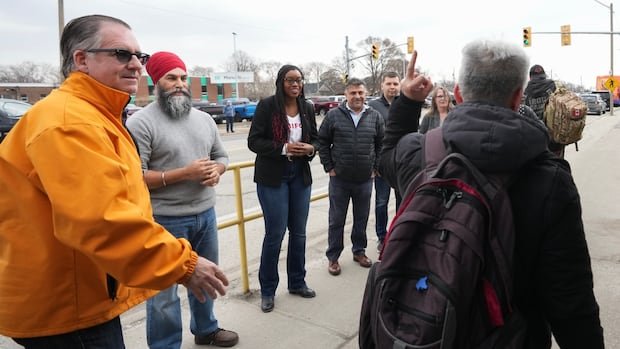A year ago, the former NDP leader Jagmeet Singh emphasized in his Labor Day message the party’s unwavering commitment to supporting working Canadians and the labor unions safeguarding their rights. Fast forward six months, during the federal election campaign in Windsor, Ontario, Singh attempted to offer solace to auto workers facing the impact of new auto tariffs imposed by U.S. President Donald Trump. However, his reception was less than welcoming, as most workers hurried past him, some even expressing a preference for Conservative Leader Pierre Poilievre.
This lukewarm response hinted at a shift in union voters’ allegiance away from the NDP, a trend confirmed on election night when the party was completely shut out in Ontario, including in union-centric ridings like Hamilton and Windsor. This outcome underscored a marked change in Canada’s political landscape, signaling that the NDP can no longer rely on traditional union support.
Former president of the Canadian Labour Congress, Sen. Hassan Yussuff, highlighted the increasing recognition by political parties of the influence wielded by the approximately four million unionized workers in Canada. Yussuff stressed the need for parties to address the pressing concerns of workers, pointing out the evolving stances of both the Liberals and Conservatives towards organized labor over the past decade.
Interim NDP Leader Don Davies acknowledged the party’s need to re-establish its roots and reconnect with workers, emphasizing that the NDP’s inception in 1961 aimed to amplify workers’ voices on the national stage. Despite receiving endorsements from major labor bodies, the NDP faced challenges as some union voters gravitated towards the Conservatives in industrial towns.
Amanda Galbraith, a Conservative strategist, cited instances of right-leaning politicians like Ontario Premier Doug Ford and former Conservative leader Erin O’Toole appealing to the working class, signaling a shift in the Conservative party’s traditional image. Galbraith critiqued former Prime Minister Justin Trudeau for veering left on certain issues, creating an opportunity for the Conservatives to appeal to a broader voter base.
According to history professor Steven High, the surge of right-wing populism globally, including in Canada, has reshaped the political landscape, with non-college-educated voters increasingly leaning towards conservative platforms. High noted the Conservatives’ success in winning seats in industrial towns, attributing the electoral dynamics partly to Trump’s tariff policies disrupting traditional voting patterns.
High further highlighted the evolving strategies of right-wing populist parties to attract labor support by moderating anti-union rhetoric, marking a departure from the NDP’s historical stronghold on organized labor. Longtime NDP MP Charlie Angus viewed the election results as a wake-up call for both the NDP and organized labor, noting a strained relationship between the two entities. Angus emphasized the importance of realigning with the party’s original mission of advocating for working-class representation.
In conclusion, the changing dynamics in Canadian politics reflect a reconfiguration of traditional party loyalties, with implications for the NDP’s relationship with organized labor. The evolving landscape underscores the need for political parties to adapt their strategies to address the shifting priorities and allegiances of the working class.


